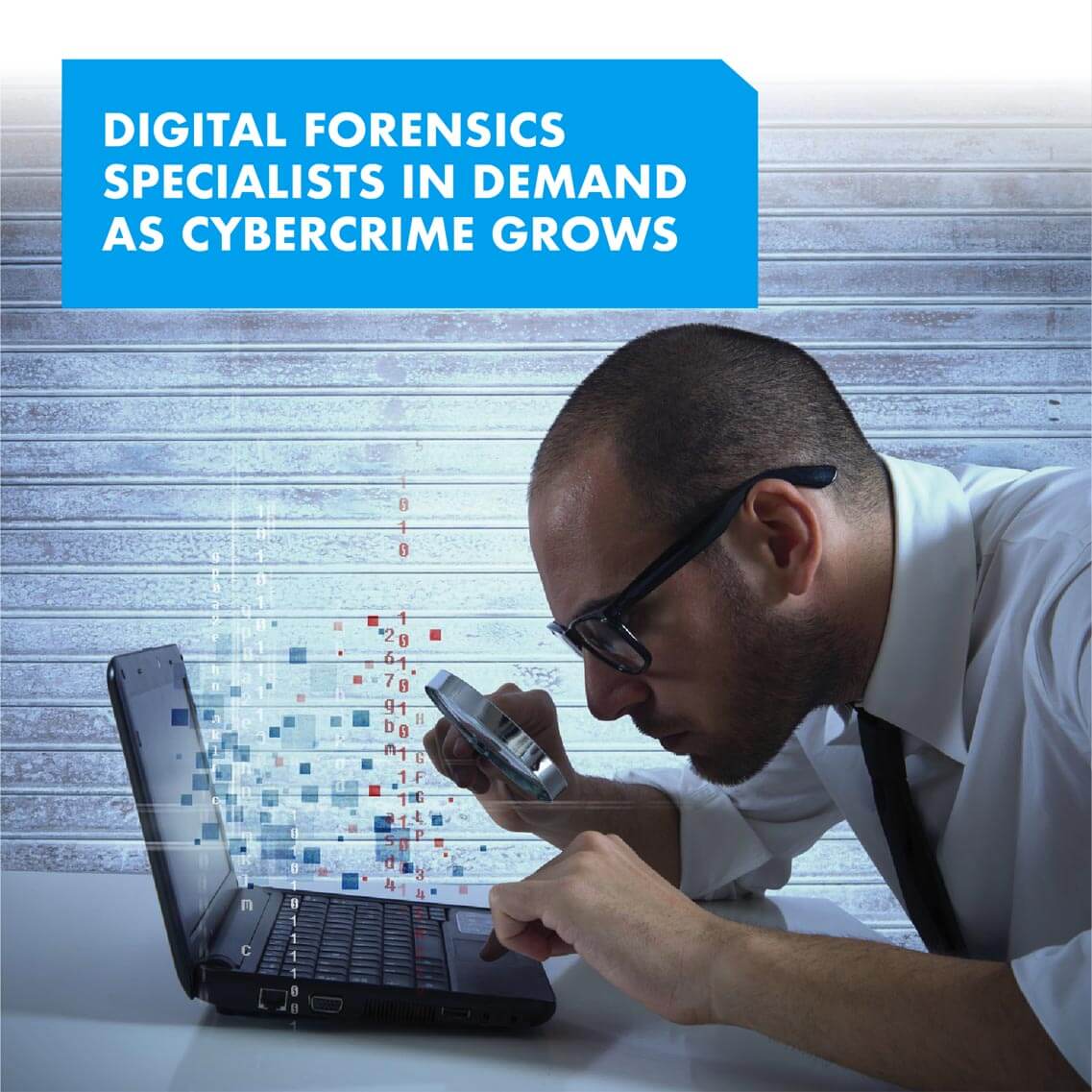
Digital Forensics Specialists in Demand as Cybercrime Grows
Digitalization has helped a lot in our lives to be more practical and efficient. On the other hand, digitalization also creates the risk of cybercrime, which is currently detrimental to institutions and individuals.
The rise of cybercrimes makes the existence of digital forensic investigations even more necessary. However, there are still very few digital forensic experts in Indonesia.
What is Digital Forensic?
Digital forensic is the process of collecting, reviewing, analyzing, and investigating digital data. Digital forensics can investigate locked, hidden, or deleted data to hide certain crimes.
According to SGU Alumni & Senior Security Consultant, Kalpin Erlangga Silaen, many cybercrimes require digital forensic expertise. “Cybercrimes include theft of Company Secrets, hacking, employee sabotage, credit card fraud, financial crimes, embezzlement (money or information), harassment, resources abuses, and identity theft,” said Kalpin when he was a speaker at the Digital Clinic which was held. by the Master of Information Technology, Swiss German University.
Quoted from csoonline.com, the term digital forensics was first used as a synonym for computer forensics. Since then, it has expanded to cover the investigation of any devices that can store digital data.
Although the first computer crime was reported in 1978, it wasn’t until the 1990s that it became a recognized term. It was only in the early 21st century that national policies on digital forensics emerged.
Read More:
Skills Required
Digital forensics certainly must have capable information technology capabilities. He must have careful analysis.
In addition to IoT skills, a digital forensic person also needs to know applicable laws. It is important to make legal assumptions after the analysis has been made.
Digital forensic skills can be trained on your own. “The simplest example can be started with how to forensic your flash disc. After that, we can do it on other devices such as laptops,” said SGU Master of Information Technology Lecturer Charles Lim.
However, formal education is needed to be able to deal with the problem as a whole. Moreover, as a digital forensic organization, you are also required to provide conclusions about the causes of cybersecurity. In this case, you will provide advice to management so that similar mistakes do not happen again.
This demand makes a digital forensic person also need to understand the problems and management of the company as a whole. You can get basic knowledge by taking formal education in college.
Certification
As a job based on the principles of scientific methods, digital forensics also has very strict procedures. All digital forensic activities must be documented and have a working reference or operational standard (SOP). Because the output of digital forensics will be an important part of the legal process in court.
Several international references and standards are generally used as SOP for digital forensic work, such as documents from ACPO UK, NIJ America, and ISO 27037 on handling digital evidence. There are also certifications for digital forensics that refer to certain skills.
Quoted from Kontan.com, there are three types of certification related to digital forensics:
- Certification of expertise in mastering certain products that are one of the tools for digital forensic activity. For examples Ence for expertise in product mastery of Encase and ACE for the Forensic Toolkit product.
- Certification that is general and focuses on mastering the basic concepts of digital forensics. Examples of this certification are CHFI from the EC-Council and GIAC from SANS.
- Certifications issued by associations, for example, CFE from the Association of Certified Fraud Examiners (ACFE) or CCE from the International Society of Forensic Computer Examiners (ISFCE).
Kalpin said basic skills are needed more than certification to become a forensic digital. However, when becoming a professional and working with a company, often administrative requirements are needed to fulfill the administrative requirements of the organization. This makes a digital forensic professional necessary to do the certification.
“Don’t make certification your main reference, but as a reward when you master digital forensic skills,” he said.
About SGU
SWISS GERMAN UNIVERSITY (SGU) is an international university in Indonesia, was established in 2000 as a joint effort between Indonesia, Germany, Switzerland, and Austria. We are the pioneer in offering international curricula in Indonesia. Qualified students can graduate with a Double Degree from Indonesia and Germany, which SGU provides in cooperation with partner universities; surely a valuable tool for your future careers. Ever since its establishment, SGU has been dedicated to delivering quality education in line with international standards and aims to develop skilled professionals who meet the demands of the industry. In order to achieve its objectives, SGU offers quality-oriented learning through 12 Bachelor’s Degree Programs and 4 Master’s Degree Programs ranging from Engineering, Information Technology, and Business to Life Sciences and Social Sciences. Furthermore, with small class sizes, and with English as the medium of instruction, you can look forward to pursuing your tertiary education and degree with full confidence.
Back

